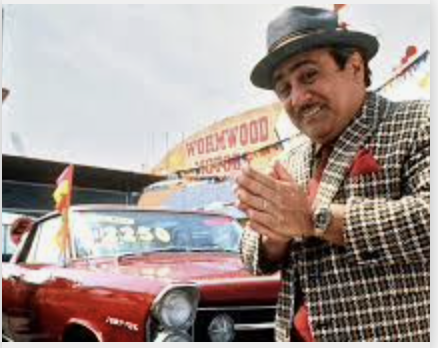Connecticut car dealers protect their monopoly — besides money, why do the Hartford Looters continue to allow this anachronism to persist?
/if you can’t trust your car dealer and your legislator, who can you trust?
An ongoing effort to allow the direct sales of electric vehicles in Connecticut faced resistance Tuesday from traditional car dealerships and unions representing auto technicians, who said the legislation would offer special exemptions to companies like Tesla and Rivian at the expense of their workers.
Most new electric vehicle manufacturers rely on a direct-sales model that avoids traditional franchise dealerships used by automakers such as Ford, General Motors and Toyota.
Connecticut, however, has a “franchise law” similar to those on the books in the majority of states, which require manufacturers to sell their cars through third-party dealerships. Legislation before the House would create an exemption for electric vehicle manufacturers without an existing presence in the state, benefiting companies like Tesla and Rivian.
During a news conference Tuesday morning, opponents of that bill said it would undermine Connecticut’s consumer protection laws and threaten the jobs of the nearly 14,000 employees of car dealerships in Connecticut — pointing to allegations of union-busting by Tesla.
“I don’t see the need to do a Tesla bill,” said state Sen. Julie Kushner, D-Danbury, a former regional director for the United Auto Workers union. “I don’t see the need to advance Elon Musk, who is already ruler of the world.”
The news conference followed a similar event last week hosted by advocatesfor the bill, who accused car dealerships of using discriminatory lending practices and hidden fees to take advantage of minority customers.
The sponsor of the bill, state Sen. Will Haskell, D-Westport, has also argued that any brick-and-mortar sales locations set up by electric car makers in Connecticut would still be subject to the same consumer protection and “lemon” laws that apply to traditional car dealerships.
In addition, despite Tesla being the most-popular electric car in Connecticut, customers must currently travel out of state to purchase or service their vehicles, supporters argue.
Brian Schneck, president of UAW Local 259, said franchise laws have been in place around the country for decades — Connecticut’s franchise law was originally passed in 1972 — and companies like Tesla could choose to follow the franchise model rather than pushing states to allow for direct sales.
“They knew that from Day 1, and they’re doing mission creep across the country, making an attempt to change the rules to favor their self-chosen business model,” Schneck said. “If Tesla is so confident in their product, and the other [electric car parts manufacturers] are so confident in their product, what do they fear about having franchise dealers? What’s the problem?”
“The franchise dealer system simply will not work for Rivian’s business model, where vehicles are made-to-order and we’re ramping our production,” Leslie Hayward, a spokesperson for Rivian, said in an email. “As a company, we are innovating on not just the product, but also the customer experience. Furthermore, we know that the vast majority of the EVs sold in the United States are via direct sales — this is no coincidence.”
Previous efforts to enact a direct-sales model in Connecticut have failed in the face of opposition from car dealerships. The latest effort passed the Transportation Committee last month with mostly-Democratic support, though a few members crossed party lines during the vote.
Have you ever had a pleasant experience at a car dealership? High pressure liars, every one of them, pushing phony prices, “protective coatings”, “glass etching”, and insurance masquerading as “extended warranties”, There service departments are cesspools of over-priced and unnecessary repairs, and the home of “hidden warranties”: complain all the way up the chain of command to the regional sales manger and you’ll eventually find that the defect that your service manager swears is your problem is, gosh, covered by the manufacturer after all. There is no reason whatsoever to protect these horrible people from competition.
Disappointingly, it’s the Republicans who have fought to preserve this monopoly and have done so for years. The Democrats favor it, presumably because they’ve inexplicably restricted relief to sellers of electric cars and not extended it to all car sellers, which adds a cachet to the idea, and, it’s safe to bet, the car dealers have been funneling money to Republicans, not to the Jackass Party. Look for that to change.


